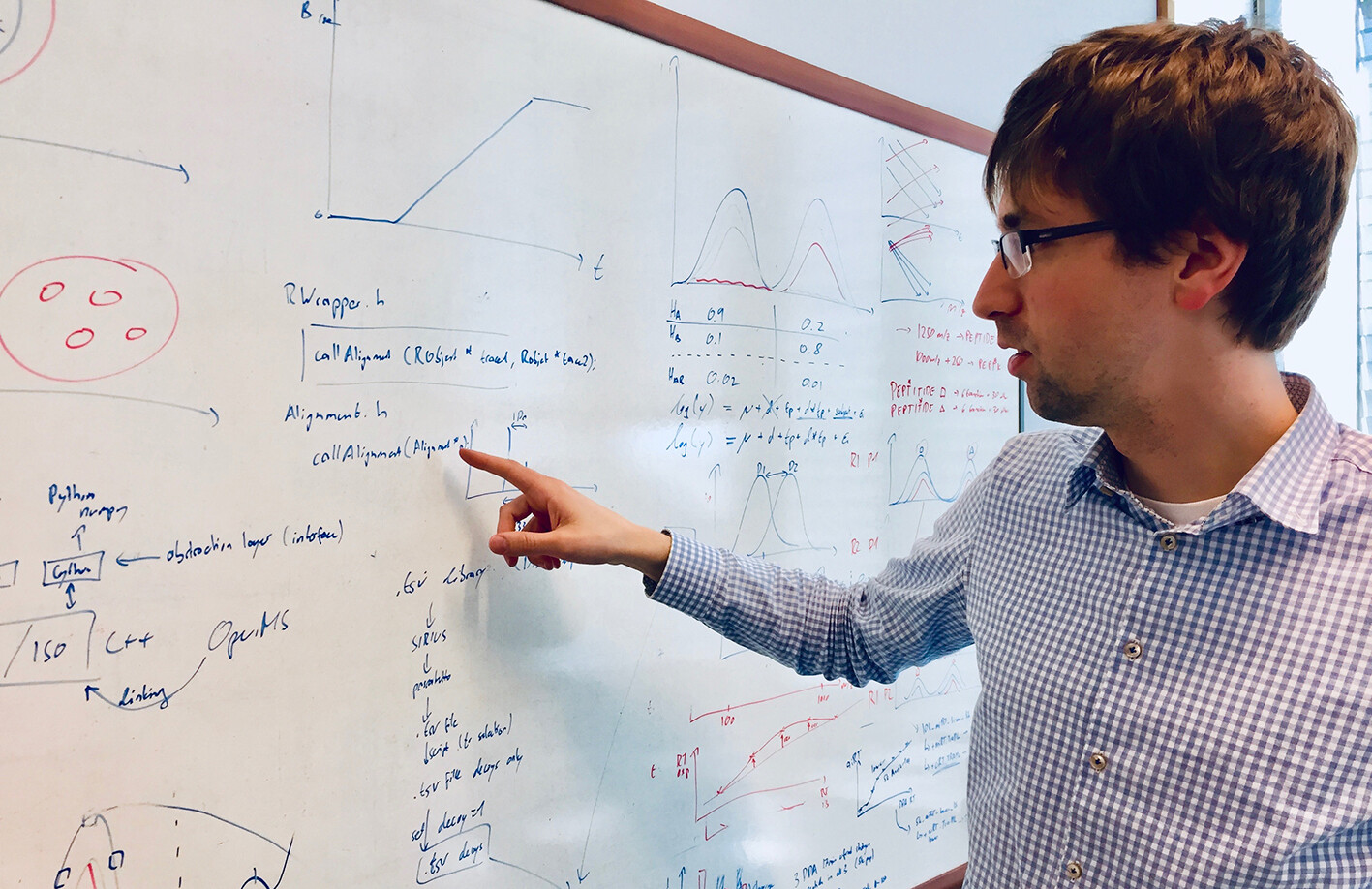Mobile Menu
- Education
- Research
-
Students
- High School Outreach
- Undergraduate & Beyond: Community of Support
- Current Students
- Faculty & Staff
- Alumni
- News & Events
- Giving
- About

Suddenly, mass spectrometry is everywhere. From drug tests at the Olympics to pollution monitoring to disease diagnostics, the method for identifying molecules in a sample has spilled from research labs to a wider society. But disparities in the programming community mean that a relatively small group of software engineers hold the keys to data analysis.
Even among the scientists—especially women and other underrepresented groups— many are facing challenges beyond their control to learn the programming skills that would help them advance their research.
Now one U of T researcher is doing his part to change that.
“There is inequity in terms of who is writing the software and providing these algorithms,” says Hannes Röst, an assistant professor of molecular genetics and computer science at the Donnelly Centre for Cellular and Biomolecular Research at U of T’s Temerty Faculty of Medicine. The existing gender disparity “where mostly white men are the ones who write the software” and a consequent lack of role models has meant that “a lot of women felt like they were never really part of the community because they did not really have other women to talk to and share their experience.”
"If you don’t have the right connections, a network of colleagues that encourage you and motivate you, people fall off at some point" - Assistant Professor Hannes Röst
And it’s not just the women. Researchers from developing countries as well as non-white and indigenous researchers in developed countries face the same invisible hurdles.
“If you don’t have the right connections, a network of colleagues that encourage you and motivate you, people fall off at some point,” he said, adding that the “unequal power in who writes the software and has access to the knowledge” can have wider impacts given a growing prominence of mass spectrometry in society.
“We hope to change that by educating a generation of future leaders and role models who can pay forward and multiply the effects,” says Röst who holds Canada Research Chair in Mass Spectrometry-based Personalized Medicine and who was named 2021 Young Investigator by the Canadian National Proteomics Network, the Canadian national association of the global proteomics community.
With support from the Chan Zuckerberg Initiative, he is developing an outreach and training program that will enhance diversity in computational mass spectrometry and equip a wider group of researchers with the advanced tools for data analysis.
Mass spectrometry allows identification of one or more chemical compounds in a sample based on their mass to charge ratio. In his own research, Röst seeks to discover novel disease markers in blood and other fluids in the body. This requires tracking thousands of molecules in samples taken from large cohorts of individuals over long periods of time. In a recent study, his team followed 1033 women over the course of their pregnancies to identify novel molecular signatures which are predictive of developing diabetes in later life. Such insights are possible thanks to OpenMS, a software Röst created for extracting the meaning from complicated data patterns and which quickly became a leading tool in the field.
OpenMS is open-source, meaning it is free to use and adapt for diverse research purposes. Röst previously received funding from CZI to make OpenMS accessible to the general user without advanced bioinformatics skills. But to take full advantage of the software, a certain level of competence with programing is required, which not all researchers have.
“Our goal is to provide researchers with the competence, the skills and the confidence to understand and improve software so that it fits their needs. We cannot anticipate all the great ideas that people will have when analyzing their data, thus empowering them to put those ideas into software is the best way to ensure that research gets done”, says Röst.
The program will teach a wider community of mass spectrometry researchers how to use and adapt Open MS for their specific research questions. The first step will be to hire a community manager whose role will be to seek out researchers from underrepresented groups wishing to advance their data analysis skills. The training will be delivered through online and in-person workshops, with travel grants available for the latter. And the most promising trainees will be placed for internships in labs around the world to be mentored by renowned mass spectrometry experts with all research and accommodation costs covered.
The effects of the program could be wide-reaching.
“The lack of diversity is not just a problem in the ivory tower,” he says. “Given the societal impact of where mass spectrometry is used and what types of questions are being addressed, I think our program can have real world consequences.”

